Paresh Rawal
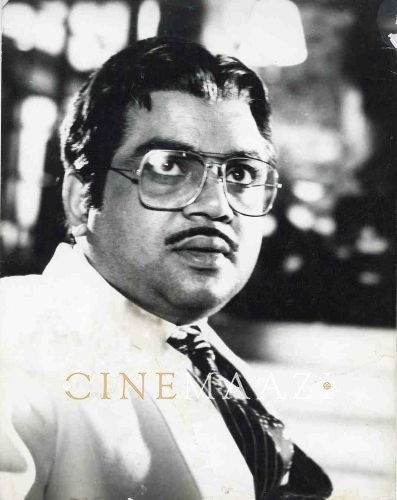
Subscribe to read full article
This section is for paid subscribers only. Our subscription is only $37/- for one full year.
You get unlimited access to all paid section and features on the website with this subscription.
Not ready for a full subscription?
You can access this article for $2 , and have it saved to your account for one year.
- Born: 30 May 1955 (Bombay)
- Primary Cinema: Hindi
- Parents: Dhanlaxmi and Dahyalal Hargovindas
- Spouse: Swaroop Sampat
- Children: Aniruddh Rawal, Aditya Rawal
Highly versatile National award-winning actor, comedian, film producer and politician, Paresh Rawal is known mainly for his works in Hindi, as well as Telugu cinema. He has acted in more than 250 films, winning several awards including the National Film award for best supporting actor for Woh Chokri (1994) and Sir (1993), and Filmfare awards for best comic actor for Hera Pheri (2000) and Awara Paagal Deewana (2002), as well as best performance by an actor in a negative role for Sir. His standout performance in Ketan Mehta’s biopic Sardar (1993) on freedom fighter and leader Vallabhbhai Patel won him acclaim, while he remains synonymous with his character Baburao Ganpatrao Apte in the cult classic Hera Pheri comedy franchise. His work in films such as Arjun (1985), Naam (1986), Shiva (1990), Mohra (1994), Tamanna (1997), China Gate (1998), Aitraaz (2004), Table No. 21 (2013) and Zilla Ghaziabad (2013) is notable. Films he has made an impact in include Andaz Apna Apna (1994), Chachi 420 (1997), Hera Pheri (2000), Nayak (2001), Aankhen (2002), Awara Paagal Deewana (2002), Hungama (2003), Garam Masala (2005), Phir Hera Pheri (2006), Chup Chup Ke (2006), Malamaal Weekly (2006), Welcome (2007), Mere Baap Pehle Aap (2008), Oye Lucky! Lucky Oye! (2008), De Dana Dan (2009), Atithi Tum Kab Jaoge? (2010), Ready (2010), OMG (2012), Welcome Back (2015), Tiger Zinda Hai (2017), Sanju (2018), Uri (2019), and Shastry Viruddh Shastry (2023). In Telugu cinema he has won attention for his negative roles in hits such as Kshana Kshanam (1991), Money (1993), Money Money (1995), Govinda Govinda (1994), Rikshavodu (1995), and Bavagaru Bagunnara (1998). In 2014, he was honoured with the Padma Shri by the government of India.
Born on 30 May 1955 in erstwhile Bombay into a Gujarati film, to mother Dhanlaxmi and father Dahyalal Hargovindas, he is an alumnus of Narsee Monjee College of Commerce & Economics, Vile Parle, Mumbai. After graduating in Commerce from Bombay University in March 1974, he became involved in Gujarati theatre. In later years he would admit, “I have been groomed on stage, yes. Whatever I am is because of theatre.”
In an interview, he revealed that he was a very mischievous child and loved making people laugh in class. “I poked fun all the time. People liked my company. They even collected money to fund my school picnics. When I was 11 or 12 years old, I realised that I wanted to act. And I have to thank my principal, Induben Patel, Lion's Juhu School, Bombay, for encouraging me. In the conservative 1960s, she said, ‘It's okay if you don't study. Pursue acting.’”
Active in intercollegiate drama competitions, he was encouraged by U R Kohli, the principal of N M College, Bombay, who would say, ‘Paresh, go for your rehearsals. Forget about classes.’ When they would return to the college at night, after the competitions, Mrs Kohli would make dinner for them.
“I just had this deep burning passion inside me. And acting, I realised, was the outlet for my emotions. When I acknowledged that, the process of my learning began.”
He joined professional theatre in 1973 with the Indian National Theatre's Vhent Chetu Maut (Death Is Just A Span Away). At the time, he just wanted to be a successful theatre actor; he never wanted to act in films until he saw Naseeruddin Shah, Om Puri, and Amitabh Bachchan and realised he wanted to be onscreen with these greats.
Beginning his foray to get into films, in 1978-80, he tried his luck in the art circuit. “They had their own star system. They had Farooque Shaikh-Deepti Naval, Naseer-Shabana and Om-Smita. They had no place for me,” he shares. He also started meeting Shyam Benegal, Govind Nihalani and Kumar Sahani but that did not help either.
He decided to forget about it and returned to theatre. As luck would have it, producer Karim Morani happened to attend one of his shows at Prithvi Theatre, and suggested his name to Rahul Rawail. “First day, first shoot. Rahul saw me and said, ‘Paresh you'll be there in all my films.’”
The success of Tokhar (the Gujarati play based on Peter Schaeffer's Equals) boosted his confidence immensely. “I found myself. I could act. I knew after Tokhar that I had arrived.”
He worked on his acting skills, seeking inspiration from Balraj Sahni, Naseeruddin Shah, Om Puri and many Hollywood greats. His most powerful learning as an actor came when he worked with Ketan Mehta in Chanas (Madhu Rai's adaptation of One Flew Over The Cuckoo's Nest). “Those three months of rehearsals were invaluable to me. He taught me the finer nuances of refined acting,” he said.
Starting off with minor roles in films such as Lorie (1984), Holi (1984), and Arjun (1985), he came to attention in Naam (1986), playing a character called Rana in the action crime drama directed by Mahesh Bhatt. It followed the story of a man who gets entrapped in a criminal plot after he leaves his country for work.
He went on to act in over 100 films between the 1980s and the 1990s, mostly essaying negative characters in films such as Kabzaa (1988), Roop Ki Rani Choron Ka Raja (1993), King Uncle (1993), and Baazi (1995).
His career achieved a different trajectory in 1993, with Ketan Mehta's Sardar, in which he essayed the lead role of freedom fighter Vallabhbhai Patel. The film was an account of Patel's political life while India was taking its first steps as an independent country. Rawal would call this a turning point for him as an actor, as studying the character of Sardar Patel in detail inspired him to work harder and improve upon his craft. The experience also transformed him on a deeper level, as he gained a more thorough understanding of Indian history, which helped him appreciate the sacrifices endured by the country’s freedom fighters in the quest for India’s independence. The film won the National award for best film on national integration.
Considered one of Hindi cinema’s most effective comic actors, Rawal has several acclaimed comedic roles to his credit. He impressed critics and audiences with his effortless and natural acting essaying a double role in the Rajkumar Santoshi-directed comedy Andaz Apna Apna (1994). He played Ram Gopal Bajaj and his evil twin Shyam Gopal Bajaj aka Teja, in this “cornball classic” which did moderately well at the box office and has since achieved cult classic status among Hindi film viewers. Rawal's dialogues in the film, such as “Teja main hoon mark idhar hai,” “Bread ka raja aur omelette ka badshah…Bajaj…Hamara Bajaj” and many more became wildly popular.
His depiction of Baburao Ganpatrao Apte, the dim-witted, boisterous and kind-hearted Marathi landlord in Hera Pheri (2000), perhaps tops his list of iconic comic roles. The film, which was directed by Priyadarshan, chronicles the comic mishaps of three jobless men looking for a way to get out of their financial restraints. Akshay Kumar, Suniel Shetty, Paresh Rawal, and Tabu play the leading characters. Again, due to the film’s enormous popularity, even today memes made from movie sequences are still popular. He reprised his role as Baburao in the film’s sequel Phir Hera Pheri (2006), which was also successful.
Other noteworthy comedic roles include his role in Aankhen (2002), where he depicted one of the three blind men planning to rob a bank. Co-starring Amitabh Bachchan, Aditya Pancholi, Akshay Kumar, Arjun Rampal, and Sushmita Sen, this film further established him as a master of comedy, leading to him essaying an array of comic roles subsequently.
He played the titular 'Atithi' Lambodar Chacha who becomes the unwelcome guest in Puneet (Ajay Devgn) and Munmun (Konkona Sen sharma)’s house in Atithi Tum Kab Jaoge? (2010). The Priyadarshan-directed Hungama (2003) featured him amidst an ensemble cast playing the key role of the uneducated businessman Radheshyam Tiwari who gets caught up in the chaos of mishaps and also misunderstands that his wife Anjali is having an affair with the Videocon shop owner, Jeetu (Akshaye Khanna).
In 2012, in Umesh Shukla's OMG: Oh My God!, he portrayed the lead character Kanji Lal Mehta, a Gujarati shop owner who makes the decision to sue God in court after an earthquake destroys his store. A thought-provoking film, it was based on the Gujarati stage-play Kanji Virudh Kanji.
His other noteworthy works in Hindi cinema include Shiva (1990), Mohra (1994), Tamanna (1998), Aitraaz (2004), Table No. 21 (2013), and Zila Ghaziabad (2013).
Rawal achieved recognition, both as a comedian and as a supporting actor in films such as Chachi 420 (1997), Nayak: The Real Hero (2001), Aankhen (2002), Awara Paagal Deewana (2002), Garam Masala (2005), Chup Chup Ke (2006), Welcome (2007), Oye Lucky! Lucky Oye! (2008), Tiger Zinda Hai (2017), Sanju (2018), and Uri: The Surgical Strike (2019).
He has delivered powerful dramatic performances as well such as in Aakrosh (2010) which was based on honour killing, and the sports-genre Toofaan (2021) directed by Rakeysh Omprakash Mehra which had Farhan Akhtar playing a national-level boxer.
Rawal also enjoyed success in television, as part of the Doordarshan TV Serial, Bante Bigadte.
Sharing his views on acting, he has observed, “There's no wrong or right in acting. Both sides of the coin are right. It is just a matter of choice. I see acting as an opportunity to live several lives without going through the real-life consequences. Where else will you get such a noble chance? But, of late, I have been thinking that acting is a spiritual experience for me. That happens when the role is well-written. Then, I think about its demands. I have to go deep into myself to bring out the person I have to portray. The aspects I can't bring out, I study. …Ultimately, I am the instrument to flesh out the character. Then I realise what kind of person I am. And my self-purification starts. Otherwise, my Hindi film roles have only given me bread, butter and popularity.”
Turning producer, he is credited as producer of the TV serials Teen Bahuraaniyaan (2007-2009), Jeevan Saathi: Humsafar Zindagi Ke (2009-2009), Laagi Tujhse Lagan (2010-2011), as well as the line producer of OMG: Oh My God (2012) and the crime horror drama Welcome Home (2020).
Rawal has also successfully ventured into politics. He was victorious as the Bharatiya Janata Party's Member of Parliament (MP) from the Ahmedabad East constituency in the 2014 Indian general election. In September 2020, he was appointed as chairperson of the National School of Drama by the President of India.
On the personal front, in 1987 he married actress and winner of the 1979 Miss India contest - Swaroop Sampat. In an interview, he talked about it saying, “Another amazing thing happened. I fell in love with Swaroop (Sampat). The years 1976 and 1977 were a happening time. Imagine a Gujarati middle-class, medium-built boy falling in love with a rich, Cathedral-educated Femina Miss India. Dream chal raha tha! (It was a dream run for me)” They are parents to Aniruddh Rawal and Aditya Rawal.
-
Filmography (76)
SortRole
-
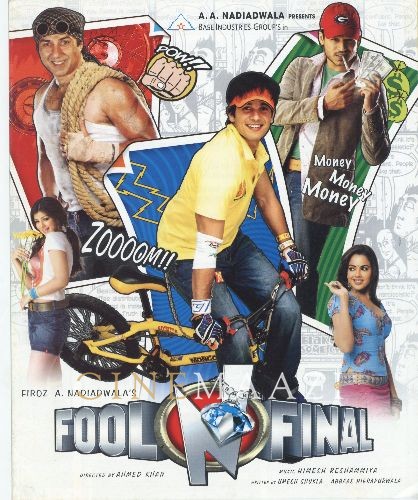
Fool N Final 2007
-

Jaane Hoga Kya 2006
-
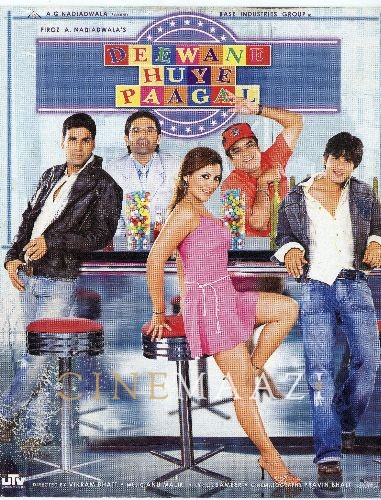
Deewane Huye Paagal 2005
-
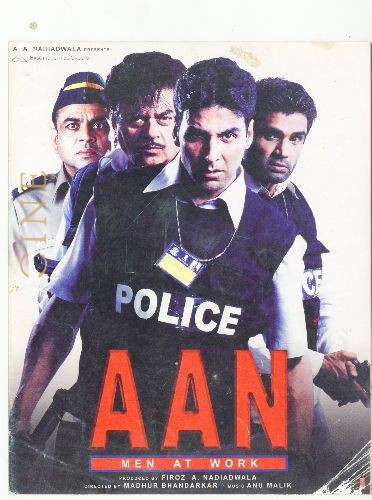
Aan : Man At Work 2004
-
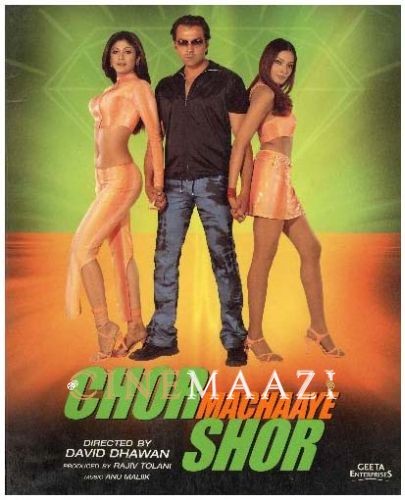
Chor Machaaye Shor 2002
-

Aankhen 2002
-
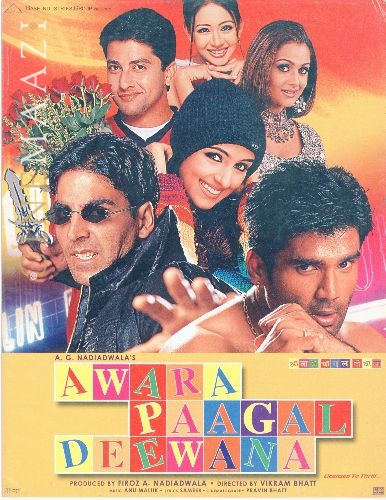
Awara Paagal Deewana 2002
-
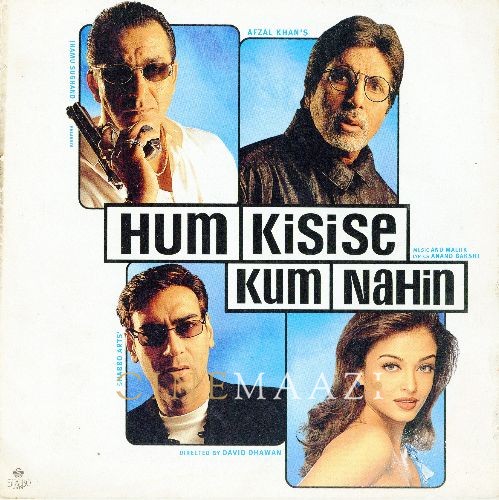
Hum Kisise Kum Nahin 2002
-

Deewane 2000
-
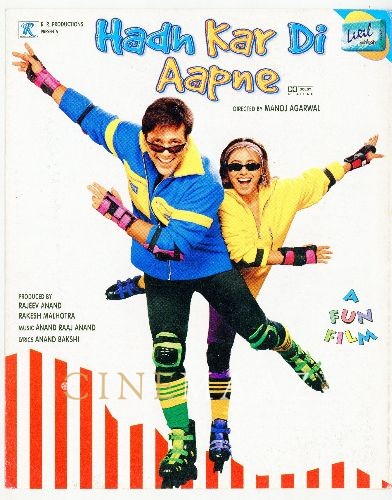
Hadh Kar Di Aapne 2000
-
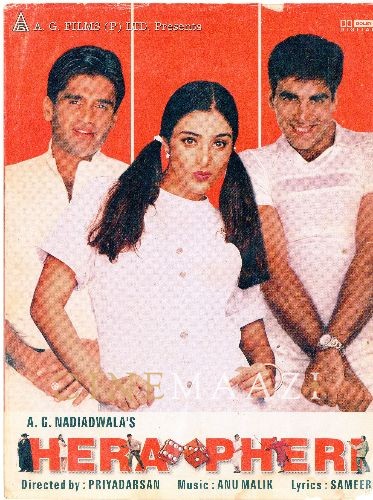
Hera Pheri 2000
-
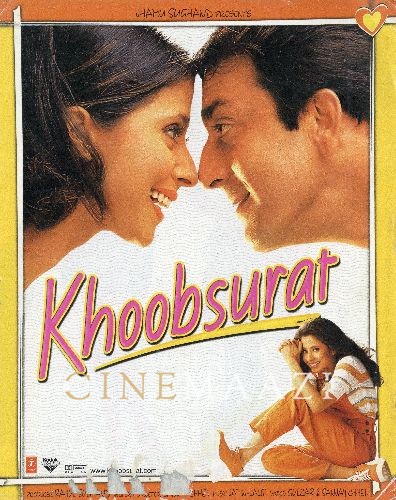
Khoobsurat 1999
-








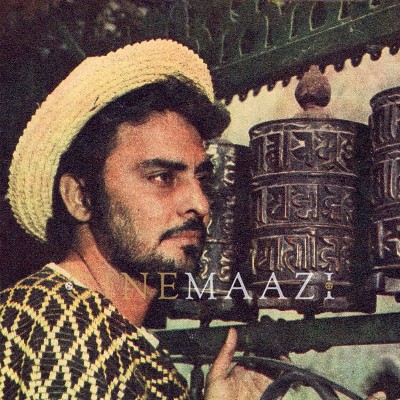

.jpg)



